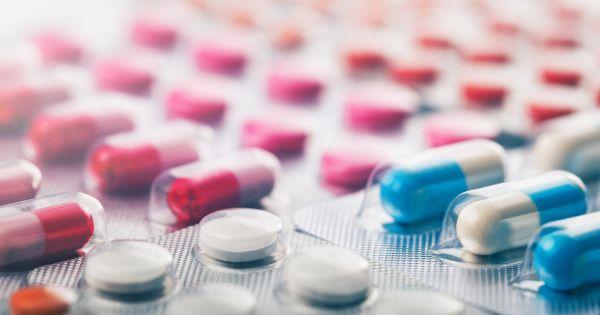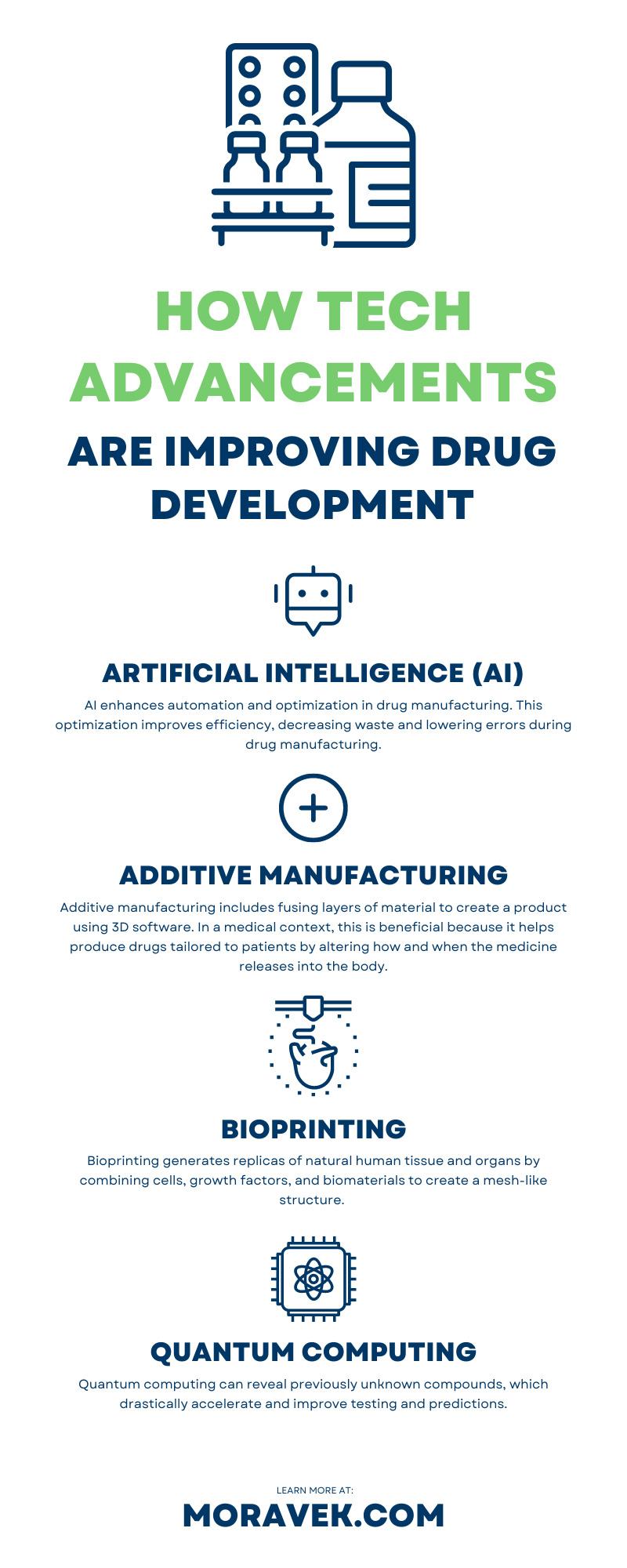
Technology is a game-changer for several industries, including pharmaceuticals. Companies use the latest technology to improve healthcare, produce drugs, and automate processes. Discover how tech advancements are improving drug development, with specific examples below.
Medical Research Evolvements
Modern technology is always a critical part of new drug development. Scientists use computers, updated software, and automated machines to advance research in laboratories. The new technology can test thousands of drug molecules at one time! Development is less time-consuming, allowing scientists to complete more research and pharmaceutical testing in a short time frame.
Thanks to such progress, consumers have better access to medications to treat illnesses previously untreatable by traditional efforts. As you read on, we’ll discuss technologies that support a new era of drug research.
What Technology Impacts the Pharmaceutical Industry?
Tech advancements are improving drug development by providing innovative ways for the pharmaceutical industry to research, create, and test medications. Scientists can compute patient information to streamline production and generate products that treat conditions. Check out the technologies that impact drug development:
Artificial Intelligence (AI)
Artificial intelligence (AI) offers huge improvements in drug manufacturing and patient identification. Specifically, AI enhances automation and optimization in drug manufacturing. This optimization improves efficiency, decreasing waste and lowering errors during drug manufacturing.
Machine learning lets manufacturers automate complicated tasks rather than relying on manual labor, making manufacturing more efficient and accurate. AI also improves patient identification. Accurate identification reduces the risk of errors during drug development. A lower risk of errors is important because issues can have severe and fatal effects.
Additive Manufacturing
Additive manufacturing includes fusing layers of material to create a product using 3D software. In a medical context, this is beneficial because it helps produce drugs tailored to patients by altering how and when the medicine releases into the body.
Additive manufacturing can support the on-demand production of drugs, making it easier to produce medicine in emergency situations.
Healthcare professionals can print drugs in a hospital rather than relying on a stock of medication (that they may or may not have). This ability to stock supplies significantly improves a patient’s experience at hospitals because they can receive optimal care.
Bioprinting
Bioprinting generates replicas of natural human tissue and organs by combining cells, growth factors, and biomaterials to create a mesh-like structure. The new technology forms tissues and micro-organs with similar reactions that the human body does to new drugs.
Bioprinting could lead to substantial improvements in clinical trial safety. However, it requires more research to make bioprinting reliable for drug trials. Luckily, advancements show promise for this advanced technology.
Quantum Computing
Using computational strategies in drug discovery isn’t new, but using advanced quantum computers enhances the practice. Quantum computing can reveal previously unknown compounds, which drastically accelerate and improve testing and predictions.
What Has Technology Directly Improved in the Pharmaceutical Industry?
Advanced technologies make drug development better and faster. It’s important to assess direct improvements to a business to understand the impact of tech. Here are some ways technology helps the pharmaceutical industry:
Clinical Trials
Although clinical trials aren’t new, researchers have a modern approach to them with technological advancements—such as apps and electronic data collection. Human clinical trials are more efficient than most traditional means. These systems consistently collect patient information for faster results and accurate information. The improved performance supports their reliability.
Drug Discovery
Researchers speed up the drug discovery process with comprehensive databases of information about their target populations. For instance, companies can collect data from large groups of patients to predict treatment outcomes and discover new drug targets.
Furthermore, companies have personal health records (PHR) for patients that combine information from various sources. These sources include medical records, prescription history, test results, hospital visits, and more. The PHR also has genomic data from blood tests taken at different points throughout treatment. Genomic data is important because genetic differences between patients can affect how fast people respond to specific medications. It can also determine if they can tolerate the medicine.
All this to say, access to such pre-recorded information ensures faster drug discovery in the future because digital hubs support data management. Hubs can enhance drug distribution and consumer satisfaction. PHR is a trusted source of information for pharmaceutical companies, helping them track a patient’s medication journey.
Data Collection
Questionnaires are a common part of clinical trials, focus groups, and medical research. In the past, surveys and focus groups were the only means of data collection. Today, online questionnaires are the go-to.
For context, researchers gathered data on consumers through focus groups. During a focus group, researchers put a group of people in a room together and asked them questions about their experiences with medications.
These discussions are great for collecting qualitative information about the consumer experience (i.e., how they feel about their medicines and what they like and dislike about medicines in general). But when it comes to quantitative data, online surveys are better for accurate answers because they don’t require active participation, like focus groups.
Enhanced data collection allows pharmaceutical companies to gather information from more than one person at a time. This is a significant benefit for companies trying to gauge how many patients have similar experiences with their drugs.
Two Pharma Tech Trends To Know
Enhanced drug development relies on pharma tech trends to improve the industry. Along with artificial intelligence and drug-related processes, technology impacts other areas of the medical field.
Real-world data is a leading trend in pharma tech. It includes electronic health records, claims data, medical devices, and other sources that provide information on patients as they interact with healthcare providers and systems. Real-world data supports the drug development process as data produces improvements to existing drugs or to produce new medications.
Furthermore, blockchain technology is also relevant. Blockchain technology protects consumers from counterfeit drugs on the market. By using encryption and a decentralized database, companies can prevent fraud.
The pharmaceutical industry uses blockchain technology to avoid storing data in a centralized database, which hackers can compromise. Blockchain technology reduces the number of fake medications online. So, companies can focus on improving current medications and developing new drugs.
Modern Technology and Efficiency
Modern technology helps drug manufacturers save money and speed up the drug development process. Today, efficiency is essential in the medical field because it helps patients. The faster a pharmaceutical company creates a drug, the faster consumers can use it. It’s a win-win situation in healthcare because manufacturers save money while supporting patients. Furthermore, pharmaceutical companies can discover new uses for existing drugs, which saves money and time, rather than developing new products.
Interested in improving drug development at your company? Moravek provides custom services to support any stage of drug development, from drug discovery to clinical trials. We offer tritium labeling and other high-quality radiolabeling services. Get in touch with us today!

